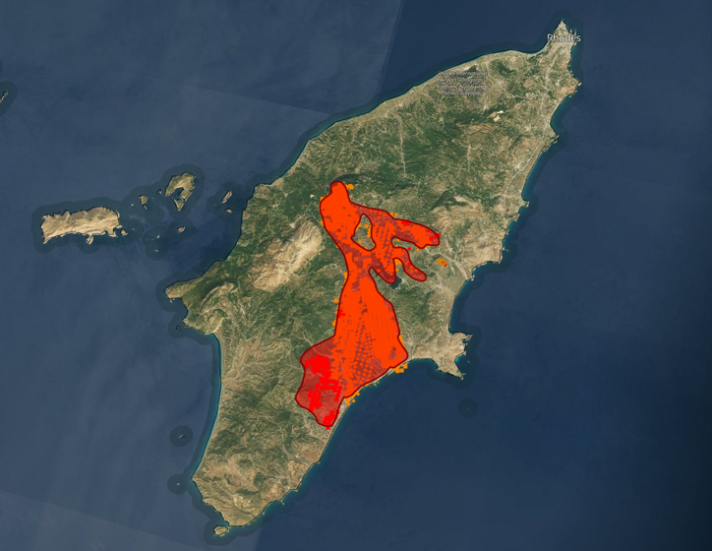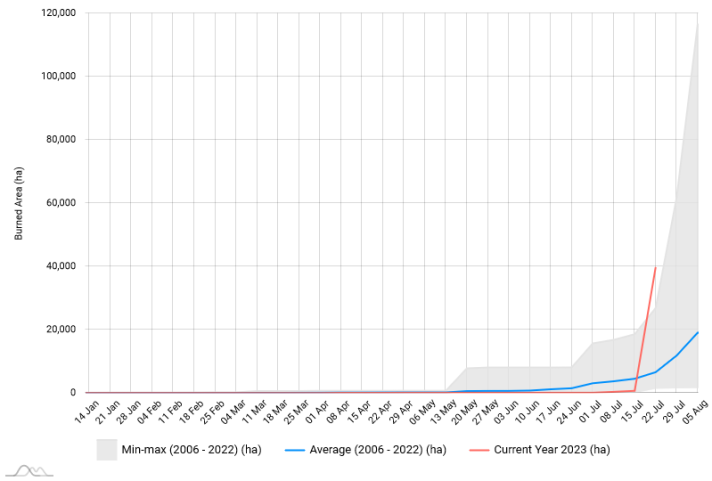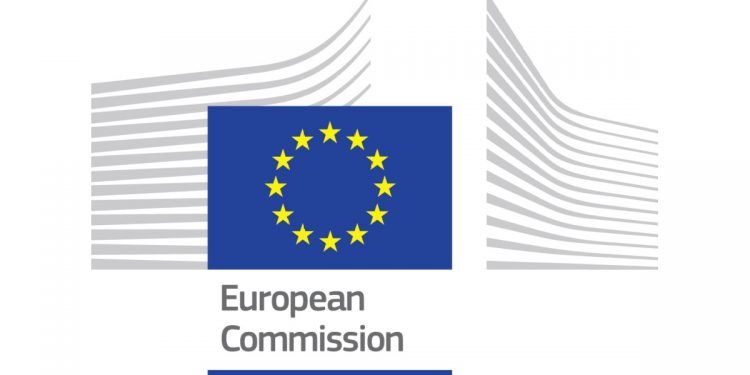Critical wildfires have devastated countries across the EU and the Mediterranean in the last week. This is on top of the almost 260 000 ha already burnt in the EU since January 2023. Critical fires have spread in Italy, Algeria, Tunisia and Greece, causing human casualties and massive environmental and economic damage. The Joint Research Centre (JRC) has continuously monitored the blazes through the European Forest Fire Information System in the EU’s Copernicus Emergency Management Service.
In Greece, scorching temperatures, dry vegetation and wind gusts have led to wildfires, which have ravaged the country for over 10 days. The fires are still spreading near heavily populated areas and tourist destinations such as the islands of Rhodes and Corfu, and the Athens area, causing residents and tourists to flee.

Where are the fires spreading?
On 15 July, the total area burned in Greece since the beginning of the year was under 1 000 hectares. Just 12 days later, on 27 July, the figure had surged to over 50 000 hectares, equivalent to around 95 000 football pitches. This is a remarkable increase compared to the average increase in burnt area of approximately 7 000 hectares for the same period between 2006 and 2022.
In addition to the information provided by EFFIS, Copernicus EMS’s rapid mapping service was activated for the wildfires in Greece to produce detailed cartographic maps of the damage caused by the fires in 8 specific events.
Based on EFFIS data on the current situation and the fire danger forecast for the following days, and in close collaboration with the Greek fire management services, the EU Civil Protection Mechanism has deployed over 9 planes from the European Civil Protection Pool and rescEU to try to control the fires. 510 firefighters and 117 vehicles have also been mobilised via the Mechanism.
Greece is not the only country ablaze. Wildfires have burned across the Mediterranean regions, from Italy to Algeria and Tunisia killing civilians and forcing much of the population to be evacuated. Answering the request for assistance from Tunisia, the EU mobilised 2 rescEU Canadairs hosted by Spain to operate in the northwest part of the country.

Severe impact on people and the environment
JRC’s estimates show that over 120 000 people have so far been affected by wildfires in Greece, Italy, Algeria and Tunisia. However, this is a very conservative estimate of people inhabiting areas that were burnt by wildfires and it does not include those that suffered the effects of the fires, such as smoke pollution, evacuations, etc.
The wildfires have also affected over 20 000 ha of Natura2000 protected areas in Italy and Greece. In the month of July alone, 3.5 million tonnes of CO2 have been emitted in Greece as a result of the wildfires.
The monitoring shows that a total burnt area of 135 000 ha in the 4 Mediterranean countries in just 12 days.
O artigo foi publicado originalmente em JRC.



















































